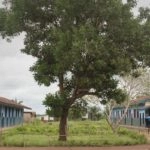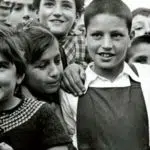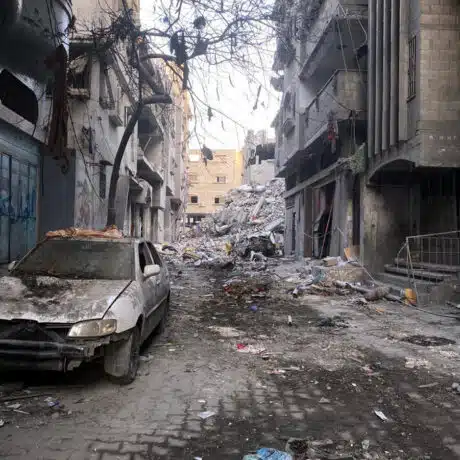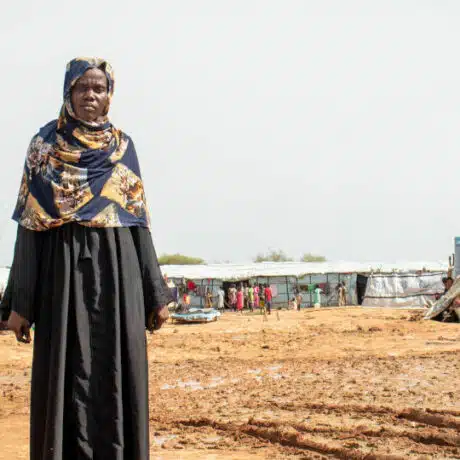News and Stories - Emergencies - 25 July 2022
“Life stopped when the drought started”
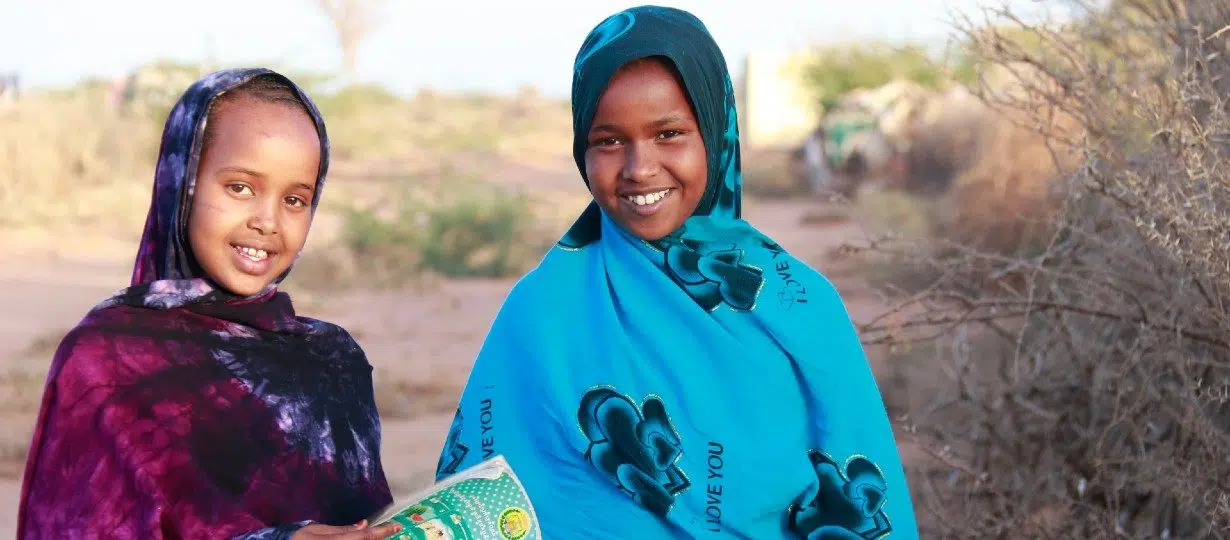
As Somalia grapples with its worst drought in 40 years, girls like 11-year-old Najma have been forced to drop out of school.
“Life stopped when the drought started,” says Najma (left), 11, who lives with her mother and three siblings in Somaliland.
Following three failed rainy seasons and some of the lowest rainfall in 40 years, Somalia’s escalating drought is creating a massive displacement crisis in the country. A quarter of a million people have had no option but to leave their homes in the past year, facing life-threatening water and food shortages.
Najma and her family are currently living in a displacement camp after being forced to leave their village. “We used to have 300 goats and sheep, but now we only have 30. The situation is really bad. People are hungry and have water shortages. It makes me feel sad,” she tells us.
Najma, who was studying in grade 2, has been forced to drop out of school. “Before, I went to school and learnt Somali, social studies, mathematics, Arabic and Islam. But when the drought came, most teachers stopped coming to school and moved away with their families to look for food, water and pasture for their animals.”
The drought had led to the closure of many schools in Somalia due to lack of teaching staff and for those children who have migrated to IDP camps like Najma, most have been unable to continue their education as there are no learning facilities in the camps.
Najma now spends her days looking for water and doing other household chores. “I help my mother because she couldn’t get the water as well as do all the other things. I usually wash the dishes and do the cooking as well.”
Lack of food is also taking its toll on Somalia’s children. According to the latest Somalia Food Security and Nutrition Assessment released earlier this month, about a quarter of the 1.4 million children, equivalent to 329,500 children, will suffer from severe malnutrition this year.
Najma says the crisis is worse for girls. “Even if girls are hungry, we only eat leftovers, if there is any left. The younger children eat first… Mothers do the same thing, only eating their children’s leftovers. It affects girls in different ways. Their bodies become malnourished and you can see it from their appearance.”
Despite the challenges she is facing, Najma is hopeful that she will be able to return to school one day. “I miss living a happy and normal life. I would like the government to enrol all children in school. Education is the most important thing. I hope they support girls like us to stay in school and live normal lives. I want to be a teacher when I grow up.”
Najma would also like to see more support for people who have affected by the drought. “Initially, I would like people to receive livestock to make up for their lost animals. I would also like more trees to be planted and to have something to eat and drink.”
Plan International is responding to the crisis through provision of water which is being delivered to affected communities using water trucks. We are also distributing cash transfers to some of the most vulnerable families in need.
“I dream to see my community have a better life, be educated and change the world. I would like to ask everyone, to help displaced and affected people who are vulnerable. We greatly benefit from the support we receive and use it to cover our daily expenses or to pay off our debts,” concludes Najma.
By donating today, you can help provide life-saving food, emergency cash transfers and child protection to children and families enduring hunger.
Any donation you make will be multiplied by 15 times, thanks to our partnership with the World Food Programme. Donate now.

